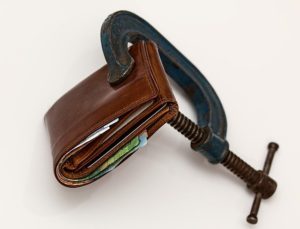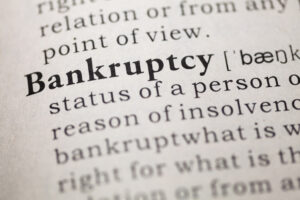 Navigating Bankruptcy During Times of Crisis
Navigating Bankruptcy During Times of Crisis
During economic downturns, a lot of people can get pushed to the brink. And in that situation, it’s easy to wonder how to avoid bankruptcy.
Facing bankruptcy can feel overwhelming and scary. But armed with the right strategies and insights, you can emerge stronger and more prepared for the future. We see it every day at our Memphis bankruptcy firm.
In my experience with a wide range of clients, bankruptcy isn’t nearly as terrifying in reality as people make it out to be. It can be a godsend and a true fresh start – especially during a time of economic downturn.
But not everyone needs bankruptcy, and there are things you can do to avoid it or, at the very least, set yourself up for the best chance of success.
 Understanding Bankruptcy
Understanding Bankruptcy
Bankruptcy is a legal recourse for people overwhelmed by debt. It provides a structured way to address your financial obligations that you simply can’t meet, no matter how hard you try.
Bankruptcy can help you get out of debt and stop foreclosure, repossession, wage garnishment, and creditor harassment
Think of it like hitting a reset button—it’s not an end, but a fresh start, especially if you prepare correctly.
Learning from Past Economic Downturns
Economic downturns, like the Great Recession of 2008, the COVID pandemic, and periods of high inflation or unemployment, often bring tough lessons in financial management.
During these periods, many people find out they’ve made some serious financial mistakes that put them in danger when the wider economy shifts.
For example, we had clients not realize they’d taken on excessive debt until the housing crisis in 2008 forced them into impossible situations. And COVID showed the dangerous and often tragic problem of so many people not having enough savings.
In times of crisis, bankruptcy might be a life-saver. But there are some alternatives you can try if you really want to avoid bankruptcy or don’t think you need it yet.
Steps to Take Before Deciding on Bankruptcy
While I know how life-changing bankruptcy can be (I even wrote a book about it), not everyone needs a bankruptcy. And not everyone wants one.
Sometimes, you just need a way to get a hold of your finances so you can make it through a short-term struggle. And sometimes, these steps can be enough:
Assess Your Financial Health
Just like a captain assesses their ship before a big journey, review your financial situation. Look at your income and assets. Understand how much you current have in spending, savings, and debt. And see if you can identify any areas where you might be able to save.
Budget Wisely
Create a detailed budget that tracks all your income and expenses. This will help you pinpoint where you can cut costs and how you can potentially increase your income. Especially in this day and age, when so many transactions happen digitally and automatically, it’s critical you know where your money is going and why.
Negotiate with Your Creditors
Sometimes, creditors are willing to negotiate terms rather than lose the entire amount in a bankruptcy filing. This might mean they’ll help you create a payment plan or reduce your interest rate. For example, many hospital billing offices now have staff to work on medical debt payment programs. They’d rather figure out a solution than lose out on whatever you can pay.
Get Outside Help
There are organizations and programs in place to help people in debt before they file bankruptcy. This might include debt consolidation, refinancing, or debt counseling services. You might also want to talk to your bank or lenders about your options.
Just remember, in most of these negotiations, you only have their word for it. You still owe the debt, even if they’re willing to work with you. A car company can say they won’t repossess your car, but they may still have the right to do so.
One of the many advantages of bankruptcy is that it’s enforced by law – so your creditors can’t go back on their word.
 How to Avoid Bankruptcy by Preparing for the Future
How to Avoid Bankruptcy by Preparing for the Future
You can also do a lot now to prepare for an economic downturn, including:
Build an Emergency Fund
Aim to save at least six months’ worth of living expenses. This fund should cover not only basic expenses but also allow for unexpected medical bills, home repairs, or sudden unemployment.
Learn About Credit Management
Learn about different types of credit and how to build up a good score. We’ve written a lot about this subject, including rebuilding your credit even after a bankruptcy.
Develop a Long-term Plan
Making long-term plans isn’t just for the rich. With an idea in mind of what the future might look like, it can be easier to make wise choices today. In fact, setting specific savings goals generally makes people much more willing to save when they can.
Understand When and Why Bankruptcy Might Be Best
For some people, the ideas above might seem impossible, because your situation is more dire.
If your goals include:
- stopping a foreclosure or repossession
- clearing credit card debt or medical bills you could otherwise never pay back
- ending wage garnishment
- getting creditors to stop harassing you
Bankruptcy might be your best option.
Fortunately, while the decision to file might be scary, the process is simple.
 What to Do If You Think You Might Need Bankruptcy
What to Do If You Think You Might Need Bankruptcy
Sometimes, no matter how well you prepare and how much you try to prevent it, debt gets out of hand.
If you’re in a place where bankruptcy seems like it might be the best option, you probably have a lot of questions. Fortunately, our attorneys offer a free consultation, no strings attached.
At this meeting, we’ll walk you through exactly what to expect from the process. We’ll look at your own hopes and goals. And we’ll help you make a plan that achieves them.
Whether you know you need bankruptcy, aren’t sure if it’s the right fit, or desperately wish you can avoid it, we can help you figure out the next steps.
So no need to wait any longer to get started. You have nothing to lose by figuring out what you want to do now. Just contact us online today or give us a call at 901-327-2100.
